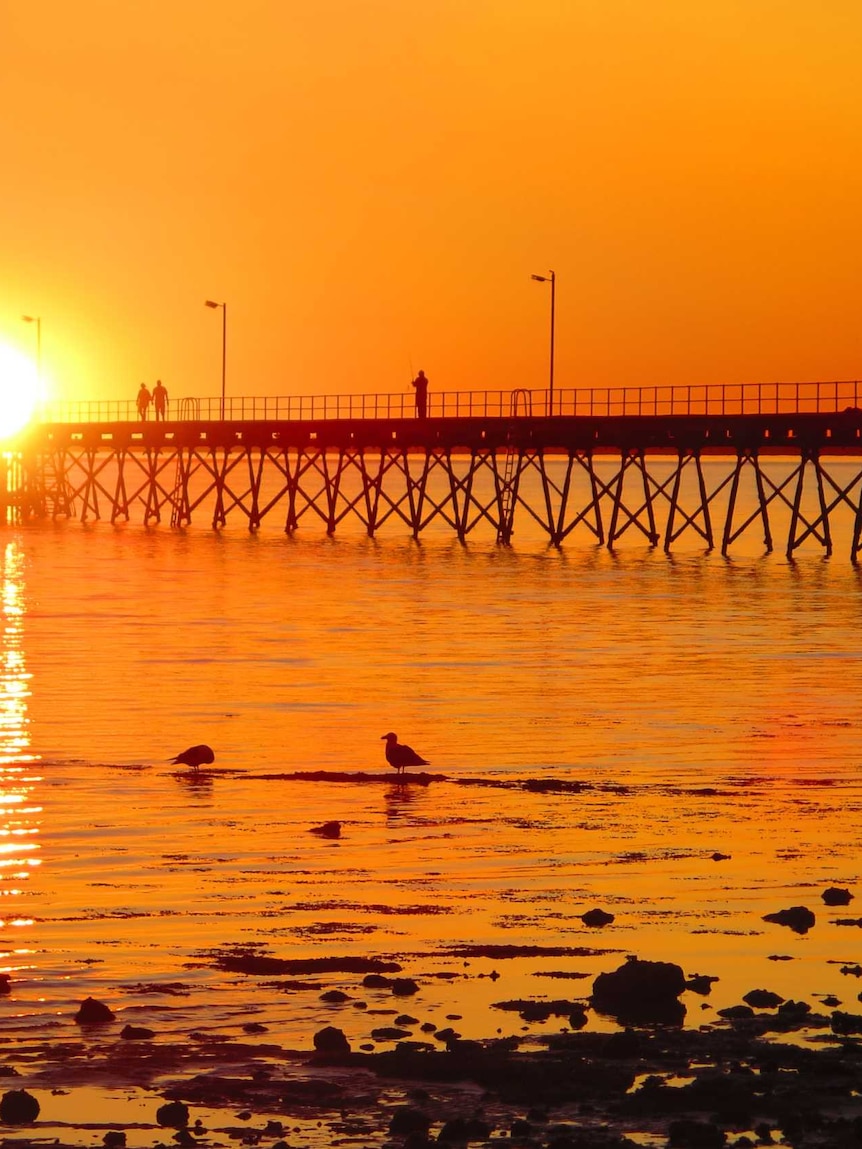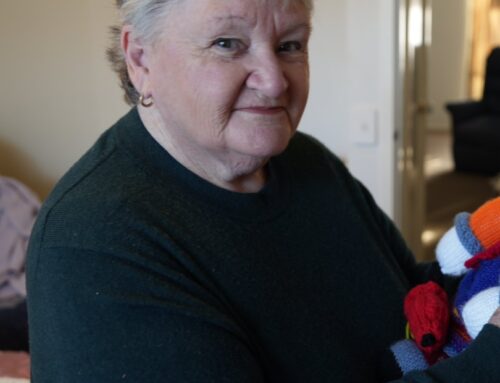A major tourist stopover before the Nullarbor is reckoning with social division linked to a rise in crime.
South Australian MPs condemn what they call a rise in antisocial behaviour in the west coast town of Ceduna, where police say property crime has increased.
The ABC surveyed 12 businesses who all had experienced an increase in shoplifting — but they said Ceduna was still a safe place to live.
The town has been on the frontline of social policy interventions and was a trial area for the scrapped Cashless Debit Card (CDC) from 2016 to 2022.
The former Liberal government introduced the cashless debit card to quarantine 80 per cent of a person’s income so it could not be spent on alcohol, gambling, some gift cards or withdrawn in cash.
The card has left a divisive legacy, with residents split on its effectiveness and Indigenous leaders pointing to work incentives for welfare as a better policy.
Ceduna Aboriginal Corporation chief executive Wayne Miller said the community needed to come together to find a solution to social unrest.
“We want to see Indigenous people employed in the main street from the local businesses,” Mr Miller said.
“Let’s get everyone to the table, local council, Indigenous corporations, business owners, and start to talk about their solutions moving forward.”
Political concerns
Federal Member for Grey, Rowan Ramsey, this month linked what he called a “collapse of social order” in Ceduna to the scrapped card.
“At the moment I am getting inundated with contacts from people in Ceduna who cannot stand the fact that businesses are being broken into regularly, cars are being stolen and trashed, windows are being smashed,” he said in a speech to parliament.
“Since Labor abolished the Cashless Debit Card, this community has been subjected to increased violence, house break-ins, shop theft and incidences of alcohol abuse and domestic abuse.”
Flinders MP Sam Telfer raised similar concerns in state parliament.
He said the town felt let down by the decision to remove the card.
Labor went to the last election promising to end the card, citing reports it stigmatised people.
Rise in crime
Ceduna business owner Darren Bennett said his store had only been broken into twice in 27 years.
“There’s been a spate of crime in recent times, in the last few months there seems to have been some issues in the township but it’s nothing we haven’t seen before,” he said.
He said he had noticed a difference in the community since the card ended.
“Since the removal of the card certainly there’s been a change,” he said.
“Probably around the anti-social behaviours of a very small minority, but outside of that not too much.”
Police confirmed they were aware of a perceived increase in crime in Ceduna but said reports of serious criminal trespass offences peaked in May 2023 and had since reduced.
Card concerns
Minister for Social Services Amanda Rishworth said there was no evidence or data that the Cashless Debit Card worked to reduce gambling or alcohol misuse in Ceduna.
“Issues such as alcohol use or crime in remote and rural Australia are complex issues and to suggest that rates of crime, use of alcohol or other antisocial behaviour in Ceduna is linked to the CDC is misleading,” Ms Rishworth said.
Research conducted by University of Canberra senior lecturer Shelley Bielefeld found widespread concerns about human rights to privacy, social security and non-discrimination were violated by the mandatory program.
“In some cases people who had been in paid employment their whole lives, managing their wages, were treated by the government as if they had no budgetary competence and put on the CDC,” she said.
Her research found that people with addiction issues could find workarounds such as buying permitted goods and then selling those at less than their market value to get access to cash.
Mirning and Kokatha Ceduna artist Glenda Richards said she was was placed on the card after returning to Ceduna from Brisbane to care for her mother.
She said it should be voluntary.
“It was like a kick in the guts for me, it knocked me down,” she said.
“I studied for 10 years and got all my qualifications.”
Housing issues
SA police said there had been an increase in property crimes in Ceduna in the past 12 months, but underlying causes of crime needed to be addressed.
Superintendent Paul Bahr said police were collaborating with Ceduna services to create a coordinated approach with the community.
It was a sentiment echoed by Mr Miller, who said rough sleeping and violence were connected to a lack of housing.
He wanted to see community job incentive programs return.
He said there were increases in anti-social behaviour when changes were made to the Community Development Program a few years ago.
“There’s multiple calls from around the country to reform the program,” he said.
“That program is one of the single most important programs that build community to build better social outcomes to keep communities vibrant, and community assets for community.”
The Community Development Program arose in 2015 as a rebranding of a Work for the Dole initiative providing employment for Indigenous Australians.
Welfare participants in remote communities were required to engage in up to 25 hours of work for the dole per week, 52 weeks of the year.
Yalata Anangu Aboriginal Community chief executive David White said there was a need for job incentive programs.
He said residents of nearby Yalata were also split on support for a cashless welfare card, but the combination of the loss of the card and lack of job incentives had impacted the community.
He said the method before the rebranding was great.
“We could offer lots of opportunities within the community, usually about 20 hours a week Monday to Thursday, which gave some pride in the people who were working,” Mr White said.
“It helped us maintain our community, it helped us train people and give them more opportunities.”
Jobs solution
The Yalata community was developing projects to create jobs including a firewood business, fencing, roadhouse and local shop but did not have enough community members incentivised to work at them.
Mr White said the firewood project was a success story.
“We’ve got some young lads who had kids while they’re doing it [working] and their kids have only seen their dads work,” he said.
“We broke down that barrier.
“There’s lots of good attitudes and fun and laughter and things like that, that are good to see, it’s exciting.”
Ceduna is a popular place for tourists to stop for supplies before crossing the Nullarbor.
It was recently named a “hidden gem” for people seeking affordable coastal housing.
“It’s a wonderful place to live,” Mr Bennett said.
“I was born and bred here, and I have no plans of going anywhere anytime soon.”





